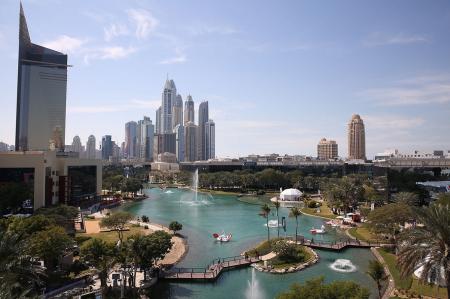Dubai Internet City Hosts Live Session On The Growing Importance Of Virtual Reality In Mental Wellness

As the power of virtual reality (VR) to treat diseases and phobias such as Alzheimer’s and arachnophobia rises, mass adoption could drastically improve its therapeutic potential, experts revealed during Dubai Internet City’s Fireside Chat.
The latest session comes after a wave of psychological research suggests VR has become key to diagnosing and treating medical conditions such as arachnophobia, acrophobia and glossophobia – fear of spiders, heights and public speaking, respectively.
The talk heard from Daniel Khayat, Head of Product at HTC VIVE, Niclas Wijkstrom, Co-Founder and CEO of Mimerse, and Dr Sameer Kishore, Head & Founder of Immersive VRx Lab and a Senior Lecturer at Middlesex University Dubai. It was organised by Dubai Internet City, the region’s largest hub for talent and technology, which regularly brings together key industry voices to share knowledge and expertise on the evolving technology landscape.
As the Co-Founder of Sweden-based startup Mimerse, a VR platform for evidence-based applications that can improve, manage and treat the minds of millions, Wijkstrom said VR is creating new opportunities for psychotherapy treatment locally, regionally and internationally.
“Virtual reality environments are already being used in therapy and have been proven to be very effective. Recent studies have shown how the technology can be used to treat people with anxiety, depression, eating disorders and a range of different phobias.
He added: “For the industry to kick on, we need to improve VR hardware to create a larger field of view with greater sense of depth and biometric feedback, so we know what the user is looking at. But what is useful and exciting is that we are moving away from VR being exclusively a cool technology to one that has the power to improve education, healthcare, science and more.”
Dr Sameer Kishore – who has extensively researched VR applications for healthcare and psychology – said the power of full-body ownership illusions makes the technology useful for rehabilitation and psychotherapy.
He said: “What’s interesting and potentially impactful in VR is when you look at yourself – this could be a floating head, a pair of hands or a full virtual body. This embodiment give you a physical representation of the virtual environment and when you change the body, you change aspects of the ‘self’. VR can teach your brain to recognise that you are in a safe environment, and the learnings you make in the virtual world translate in the real world so you can overcome your fear of heights using this technology.”
While VR is still a novel application in healthcare, Kishore, Wijkstrom and Khayat commended recent hardware improvements that have made it more accessible by reducing bottlenecks to mass adoption. All three speakers agreed that the UAE is leading the region in the deployment of VR across various economic sectors and remains an international hub for talent and technology thanks to its infrastructure and services to improve the ease of doing business in Dubai.


